A personal tribute to Rod Ewing, the man against a mountain. And my friend.
By François Diaz-Maurin | July 16, 2024
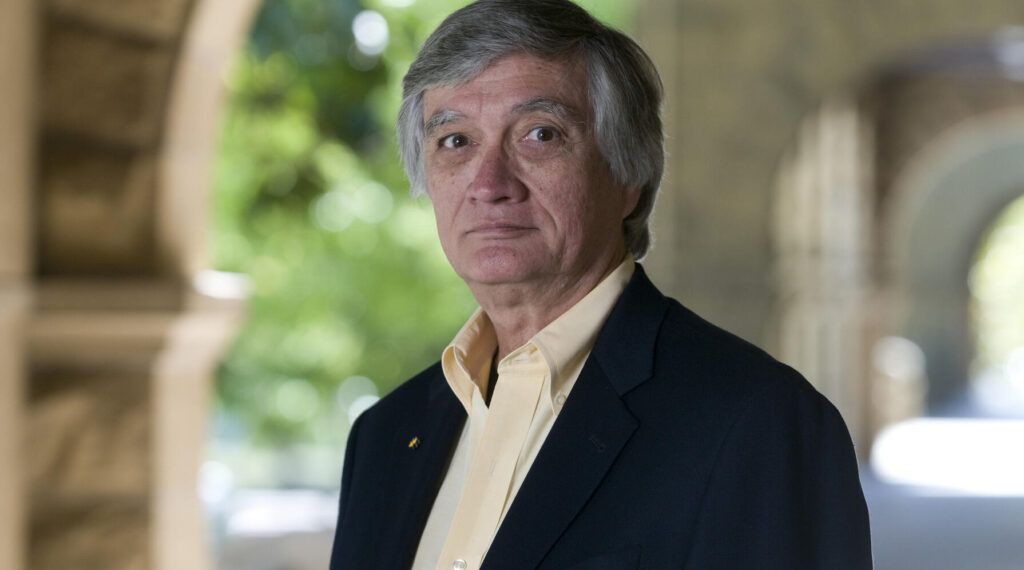 Rodney C. Ewing (Photo: Rod Searcey / Stanford University)
Rodney C. Ewing (Photo: Rod Searcey / Stanford University)
It is with great sadness that I learned the news of Rod Ewing’s passing on July 13, 2024, at age 77.
Rod was a pillar to many scientists and scholars. He was a wonderful mentor, colleague, collaborator, and a friend. Rod is the person who probably most helped me shape my career and reach for the highest standards of professional quality and scientific integrity. I would not be who I am today without Rod’s shepherding, good advice, and, most important, trust in me and my abilities. Rod has been an intellectual North star; I wish every young professional could have a mentor of the quality and kindness of Rod Ewing. Today, I feel orphaned in many ways.
Readers of the Bulletin of the Atomic Scientists will remember Rod as a regular contributor and a long-time member of our Science and Security Board. He was also a member of the National Academy of Engineering, former chairman of the US Nuclear Waste Technical Review Board, co-director of Stanford University’s Center for International Security and Cooperation, and a professor of Earth Sciences at Stanford. He was going to retire from Stanford next month.
Rod’s last contribution to the Bulletin dealt with the legacy of underground nuclear weapons testing as part of our March magazine issue, co-authored with Sulgi Park, another of his mentees. I am proud to have invited them and worked as their editor.
Rod’s contributions to science spanned more than 50 years and have been extraordinary. Among many honors and acolades was Ewingite, the Earth’s most structurally complex mineral, which was named in his honor. Rod was particularly proud of this particular honor, because it means his name will be forever remembered among the great scientists who advanced the world of human knowledge.
In 2003, Scientific American featured Rod as “the man against a mountain” after he served on the peer-review panel for the federal government’s plan to store nuclear waste from reactors at Yucca Mountain in Nevada and became one of the proposed repository’s most knowledgeable critics. Rod would later co-edit a book with geologist Allison Macfarlane, “Uncertainty Underground” (MIT Press, 2006), describing Yucca Mountain’s unresolved technical issues.
As a member of many scientific boards, Rod was also a man of compromise; able to dialogue with those with whom he disagreed and bring together experts from opposite sides.
I first met Rod in March 2016 when he invited me to a workshop he was organizing at Stanford on consent-based siting for US nuclear waste management. It was an instant intellectual match, and we would embark on a journey of scientific collaboration which led to a half-dozen co-authored papers. My two years as a postdoctoral fellow at Stanford were transformative beyond all my expectations. I owe Rod a lot for giving me this opportunity and welcoming me to CISAC.
I feel privileged to have worked with this extraordinary yet very humble scientist on some issues of our shared interests, although Rod used to say that nuclear waste policy was only his “hobby,” which always made me smile.
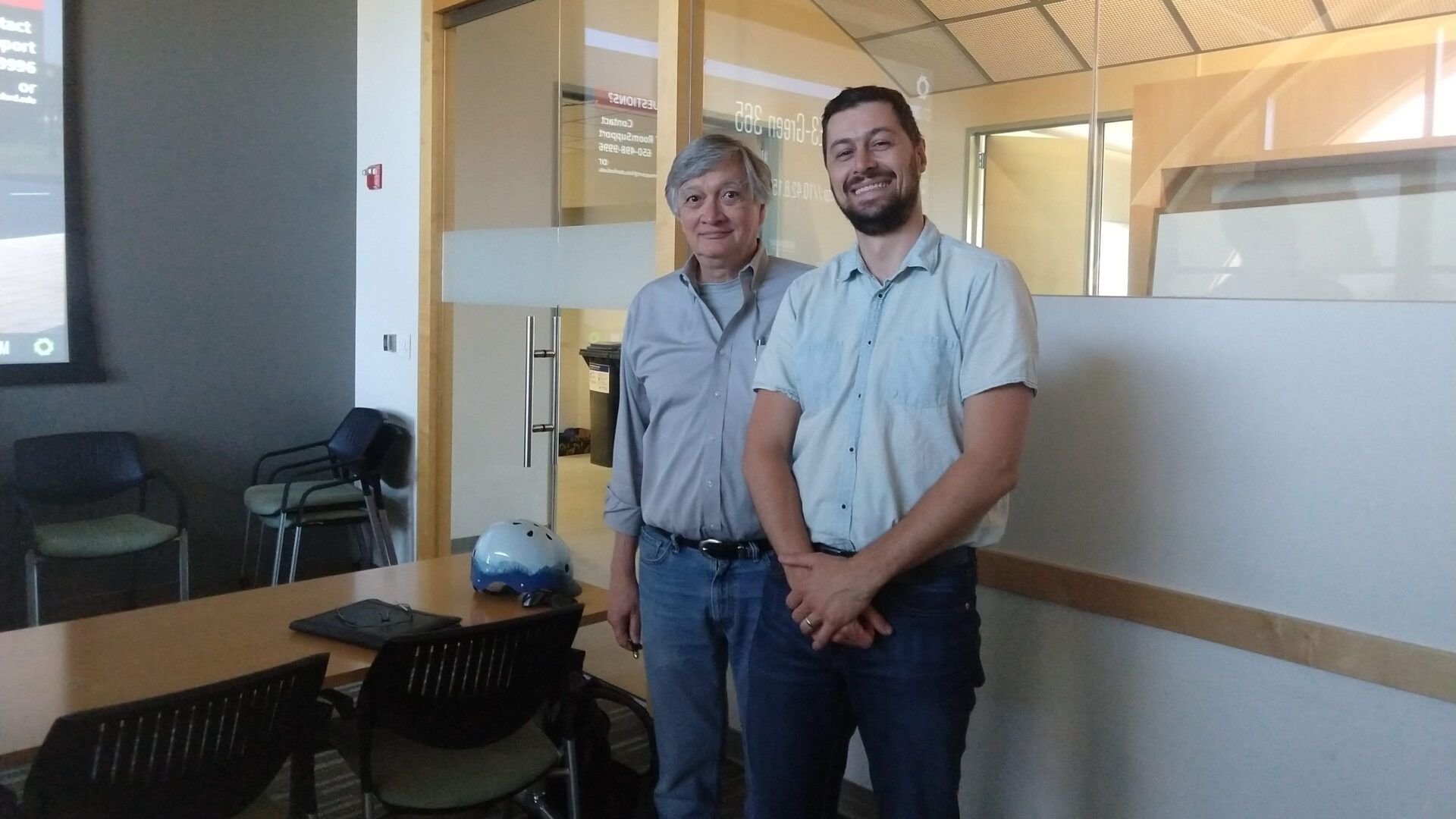
There surely will be many tributes from the many scientists and organizations Rod collaborated with. I simply invite you to read some of Rod’s wisdom, conveyed during his acceptance speech of the Distinguished Public Service Award of the Mineralogical Society of America for 2019:
“Let me make a modest proposal, we should all spend at least 10 percent of our time working on subjects that have a social impact—tenured or not. Whatever the topic, we should work to ensure that new data and understanding have an impact on the regulatory and policy framework. I think our role is not only to create new knowledge, but to push that new knowledge into areas that improve the public good. A 10 percent contribution from each of us could have a huge impact on the quality of life for all of us.
Thank you for this recognition, but there is still so much more to do.”
Let’s all live up to Rod’s wisdom.
Rod will be greatly missed and I already miss him a lot. I regret not having been able to visit him one last time.
Thank you for everything, Rod. Goodbye, my friend.
Together, we make the world safer.
The Bulletin elevates expert voices above the noise. But as an independent nonprofit organization, our operations depend on the support of readers like you. Help us continue to deliver quality journalism that holds leaders accountable. Your support of our work at any level is important. In return, we promise our coverage will be understandable, influential, vigilant, solution-oriented, and fair-minded. Together we can make a difference.
Keywords: Rod Ewing, Science and Security Board, Yucca Mountain, lives lived, nuclear waste management, obituary
Topics: Nuclear Waste, Personal Essay


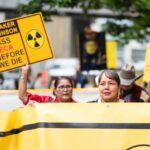
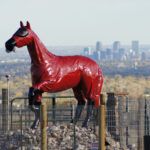

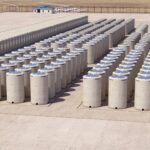
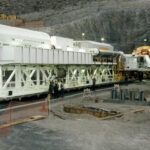









I have known and worked with Rod for more than 34 years. I and my family are deeply saddened by the news of Rod’s passing. To me and many others, Rod has always been a great leader, a great mentor, a great collaborator, an outstanding scientist and a very dear friends. He has consistently led a group of international scientists with interdisciplinary expertise to achieve great scientific accomplishments. He lifted and changed lives of many of us, of course including mine.
Rest In Peace, Rod. You will always be in our hearts.